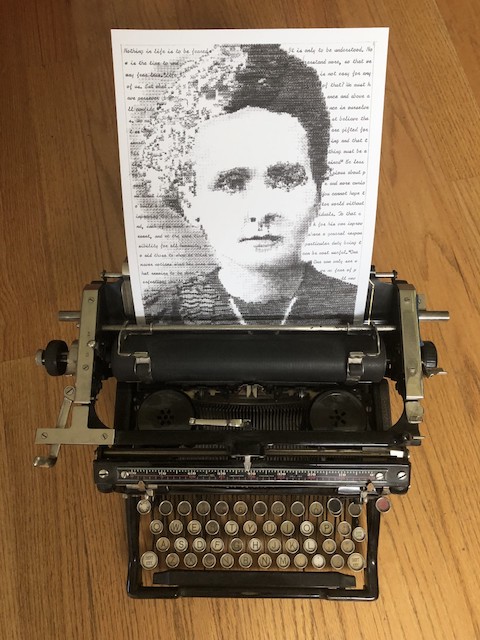Marie Curie

Marie Curie (1867-1934)
Anyone whose life has ever been touched by cancer, and by cancer treatment, should know the name Marie Curie. Marie Curie was born in Poland in 1867 to parents who agitated for greater freedom from the Soviet leaders. Her father was punished for his progressive ideals and pursuit of Polish independence from Russia. He was demoted in his work, and struggled to provide for his family. Marie studied in secret while growing up. Her mother died of tuberculosis when she was just ten years old. Marie worked doggedly to try to learn and study when she could. She worked as a Nanny to raise money for her schooling and when she was 24, she went to Paris in the year 1892 to study.
As a student, she struggled to support herself and she wore all of the clothes she owned at once to stay warm in the winter. She married Pierre Curie at the age of 28 and shared a great love of science with him. Together they earned the Nobel prize in 1903, and the Curie family members went on later to win a greater number of Nobel prizes than any other family. They were awarded five Nobel prizes in total. She had two daughters, one of whom also became a scientist who went on to win a Nobel prize. Marie Curie is most known for being the first woman to win the Nobel prize and the only person to ever win two Nobel prizes for two separate scientific disciplines; chemistry and physics.
Her husband was killed in 1906 after being run over by a horse drawn carriage on the Rue Dauphine in Paris and having his skull fractured when she was 39 years old. Marie Curie is most famous for having discovered the elements of polonium and radium, which later became essential in the radiation treatment and eradication of cancers. Unfortunately she was not fully aware of the double edged sword that radium was. She died of exposure to radiation at the age of 66 as a result of having carried radium in her pockets and not taking what we now know as necessary safeguards in the handling of this highly charged element.
Our lives are immeasurably better because of the influence of Marie Curie. She was driven to contribute to the well being of human kind through scientific discoveries. I typed Marie Curie because I believe we should know about her life and the role she played in caring for the sick and wounded from the onset of WW1 through mobile radiography and X-rays to the present day. We stand on the shoulders of those who have gone before us. Marie Curie is a woman who battled poverty, hardship, and misconceptions of who she was as a woman to attempt to limit her opportunities in studying science. She overcame these challenges and went on to achieve greatness and contribute in meaningful ways to the future of humankind.
